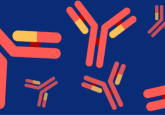NIMH’s new system for the diagnosis and treatment of neuropsychiatric disorders receives support from industry
The NIMH has proposed an updated system for patient diagnosis and treatment that will take into account etiology and pathophysiology in establishing the most effective treatment for the patient.
Genomind, a personalized medicine company specializing in the treatment of neuropsychiatric disorders, based in Chalfont (PA, USA), has announced that it will be re-orienting its research away from diagnostic and statistical manual of mental disorders (DSM) categories, in response to an announcement by Director of the National Institute of Mental Health (NIMH), Thomas Insel.
The diagnostic and statistical manual of mental disorders is a psychiatric diagnostics system based upon patient-reported symptoms that is used to distinguish between syndromes and to assist in selecting the correct medication for the patient. Though the system has been used for decades, it does not take into account patient etiology or pathophysiology.
To address this, the NIMH has proposed the Research Domain Criteria Project. This is intended to use modified procedures that include genetics, imaging, cognitive science and other specific endophenotypes, which have been connected to specific changes in the brain that are associated with psychiatric conditions. According to press release from Genomind, this new system is anticipated to achieve a broader and more comprehensive understanding of the patient’s disorder and the optimal treatment pathway.
Jay Lombard, Chief Scientific Officer and Medical Director at Genomind, commented: “We hope this move by the NIMH and the resulting Research Domain Criteria Project will not only allow patients to receive more personalized, tailored care, but help the mental health community gain greater insight into how we can improve treatment even further in the future.”
Source: Genomind releases statement supporting NIMH announcement to move away from DSM categories.






